Corporate tax is considered a huge resource for generating revenue in India’s government and is also seen as a very important aspect of all the financial obligations of a company.
The taxation landscape in India appears to be multidimensional. Depending on the nature of a company, its income and its operations are imposed on different types of corporate tax in india
Therefore, it is very important that any individual who does work related to taxation should know in detail about the types of corporate tax in India, which will be able to easily solve any problem related to corporate tax in future.
That’s why we’ve provided detailed information about the different types of corporate tax in india, in this blog post that you can’t find on any other website; So let’s start this comprehensive guide.
- The Major Types of Corporate Tax in India
- Corporate Income Tax (CIT)
- Minimum Alternative Tax in India
- Dividend Distribution Tax in India
- Surcharge on Income Tax in India
- Alternative Minimum Tax in India
- Securities Transaction Tax (STT)
- Commodities Transaction Tax (CTT)
- Capital Gains Tax (CGT)
- Goods and Services Tax (GST)
- In Conclusion
- FAQs
The Major Types of Corporate Tax in India
There are many types of corporate tax in India, we have briefly written them in detail in the following paragraphs, in which you can get accurate and maximum information about it:
These are the major 9 types of corporate tax in india.
- Corporate Income tax (CIT)
- Minimum Alternative Tax (MAT)
- Dividend Distribution Tax (DDT)
- Surcharge on Income Tax
- Alternative Minimum Tax
- Securities Transaction Tax (STT)
- Commodities Transaction Tax (CTT)
- Capital Gains Tax
- Goods and Services Tax (GST)
Corporate Income Tax (CIT)
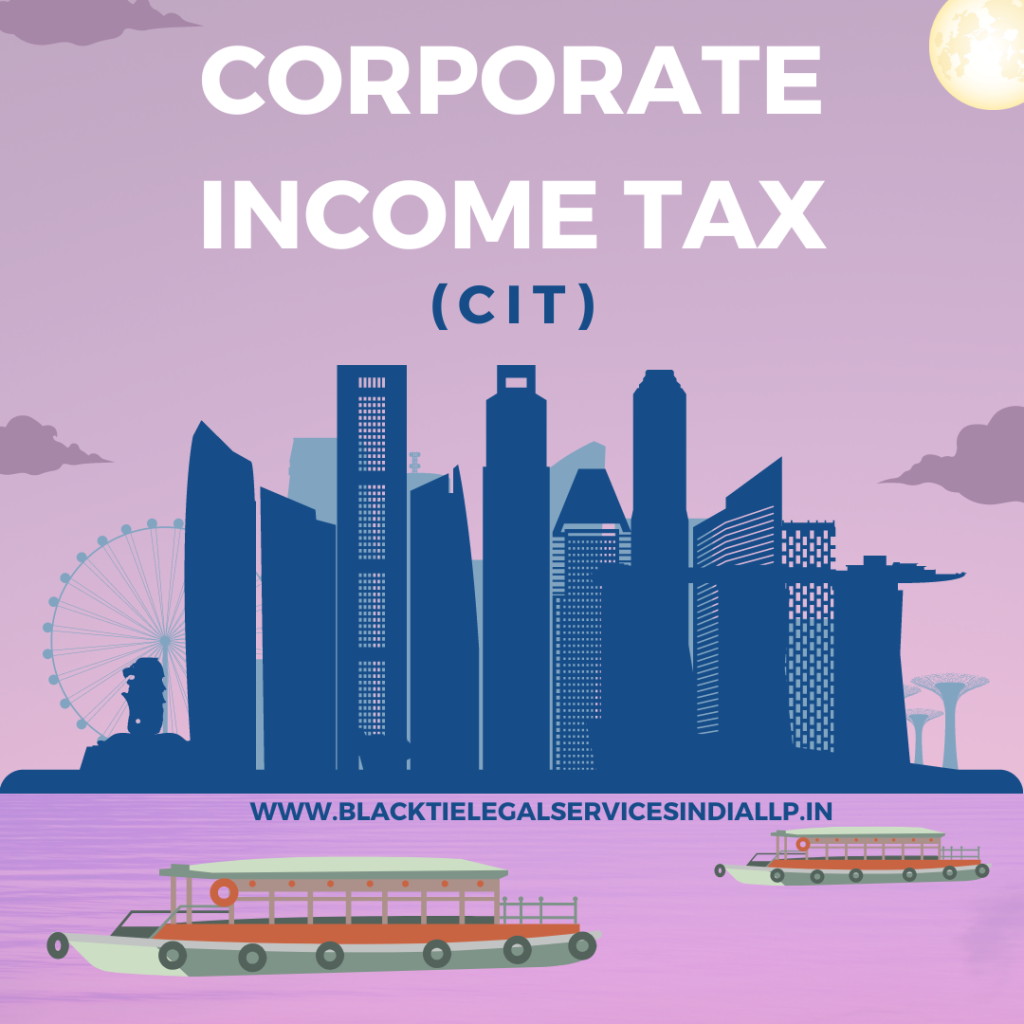
Corporate Income Tax (CIT) is seen as a direct tax which is levied on business income derived from any activity or concern in the course of business carried on by a corporation or any other legal entity.
Or it is a charge levied on the taxable income of a company which is obtained by subtracting the total expenses incurred from the total receipts earned by the company.
Total 2 types of companies are included in Corporate Income Tax (CIT), details about which are written below:
- Domestic Companies
All domestic companies registered in India and operating their business in India are increasingly required to pay corporate tax on income earned globally.
In the current tax structure, domestic companies are now liable to 25% tax only if their turnover is up to Rs 400 crore.
For companies with turnover above this level, the tax amount is set at one-fifth of the turnover, then it is 30%.
However, domestic companies that agree to accept the lower rate of 22% and are subject to the surcharge as well as cess specifications do not get the benefit of other exemptions and incentives.
Also, a domestic manufacturing firm that was incorporated on or after October 1, 2019, and starts production on or before March 31, 2023, will be eligible for tax at the lower rate of 15% (plus surcharge and cess) without including the specified exemptions or incentives.
- Foreign Companies
Foreign entities mean entities that are not registered in the territory of India but which derive income within the territory of India and are taxed in another manner.
The tax payable by foreign companies in respect of their income generated within India is at the rate of 40%. Such income is generally royalty, fees for technical services, interest and any income derived from India.
Minimum Alternative Tax in India
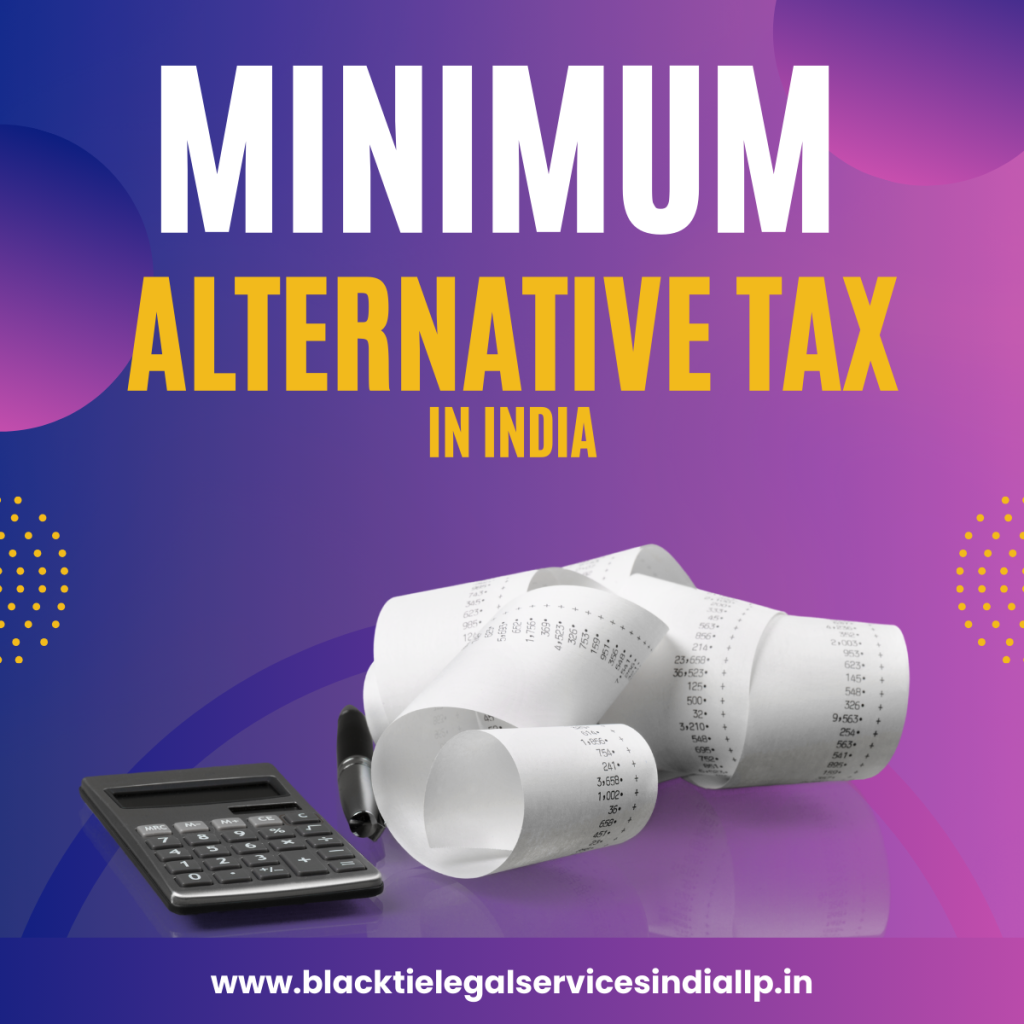
Minimum Alternative Tax in India is seen as a corporate tax provision designed with the sole objective of ensuring that companies pay the minimum tax amount even if they reduce their tax liability to zero. Or exemption and deduction have been claimed to reduce the amount to a negligible amount.
In order to compel corporates who are availing various income tax exemptions and deductions to pay tax to the government, the concept of Minimum Alternate Tax (MAT) was created.
MAT is levied on the book profit of both domestic and foreign companies who adopt normal provisions for computing tax liability, if the tax as computed is less than a specified percentage of book profit.
As per the existing laws governing computation of taxes, MAT is chargeable at 15% of book profit (plus surcharge and cess). However, companies that avail the concessional tax rate prescribed under the new sections are completely outside the scope of MAT.
This gives way to MAT credit which is for the amount of tax paid in excess of the normal tax requirement, which can be carried forward with an acknowledgement for up to 15 years and offset against future tax charges.
Dividend Distribution Tax in India

Dividend distribution tax in india is the tax that is imposed on an Indian company when it declares and pays dividends to its shareholders. This was a tax imposed on the company, not the shareholders, although it was deducted from the share capital.
It was a tax imposed on companies distributing dividends to their shareholders before its abolition under the Finance Act 2020. DDT was to be paid at the rate of 15% (plus surcharge and cess, as the case may be). And the amount of dividend distributed by the company.
As far as sources of taxation after abolition are concerned, dividends are now taxed in the hands of shareholders.
This change has brought the Indian tax practice into line with global practice where tax on dividends is paid by the ultimate recipients as opposed to the distributing company.
Surcharge on Income Tax in India
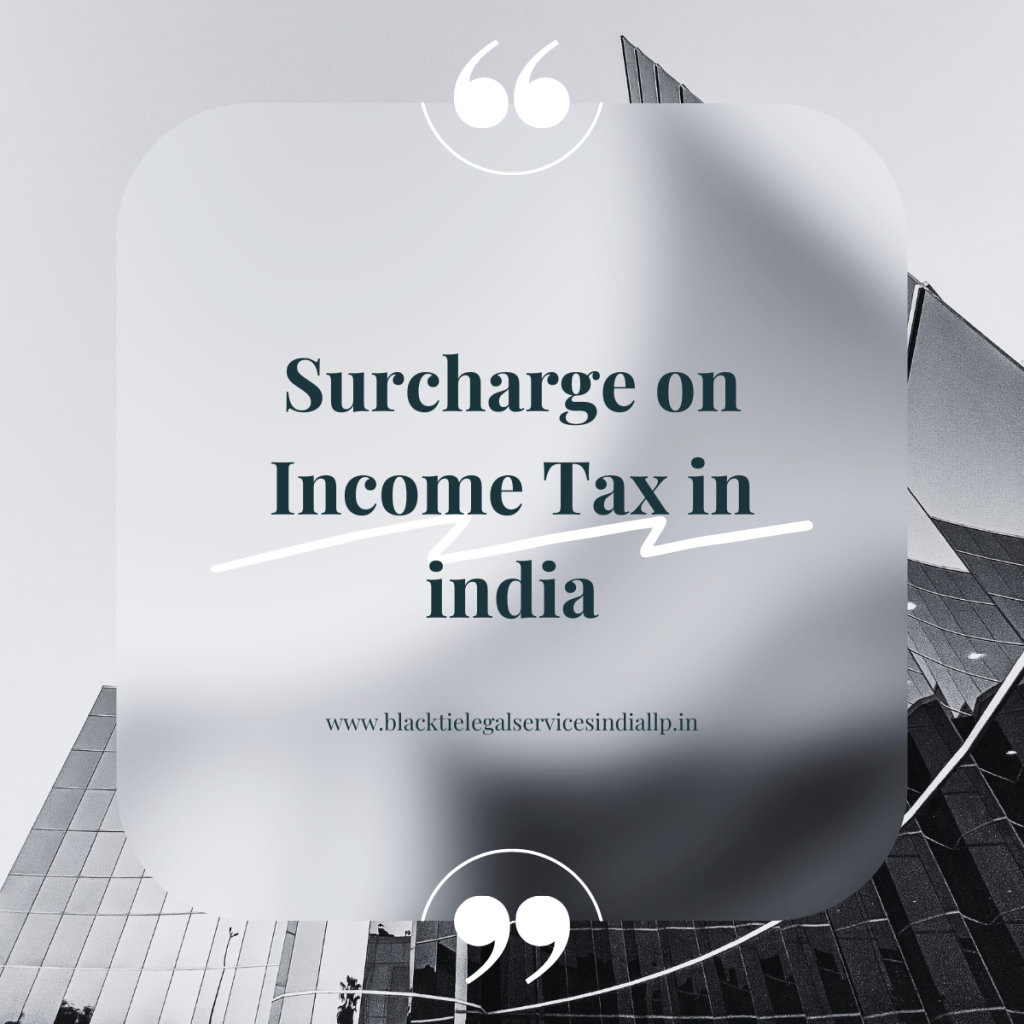
A surcharge is an additional fee that is added to a taxpayer’s basic tax liability. In the context of corporate tax in India, the surcharge is calculated on the basis of the company’s income.
- For domestic companies, if the total income exceeds Rs 1 crore but not more than Rs 10 crore, the surcharge is 7% and if the total income exceeds Rs 10 crore, the surcharge rate will be 12%.
- If for foreign companies the income is more than Rs 1 crore but not more than Rs 10 crore then the surcharge rate will be kept at 2% and if the income is more than Rs 10 crore then the surcharge rate will be kept at 5%.
Alternative Minimum Tax in India
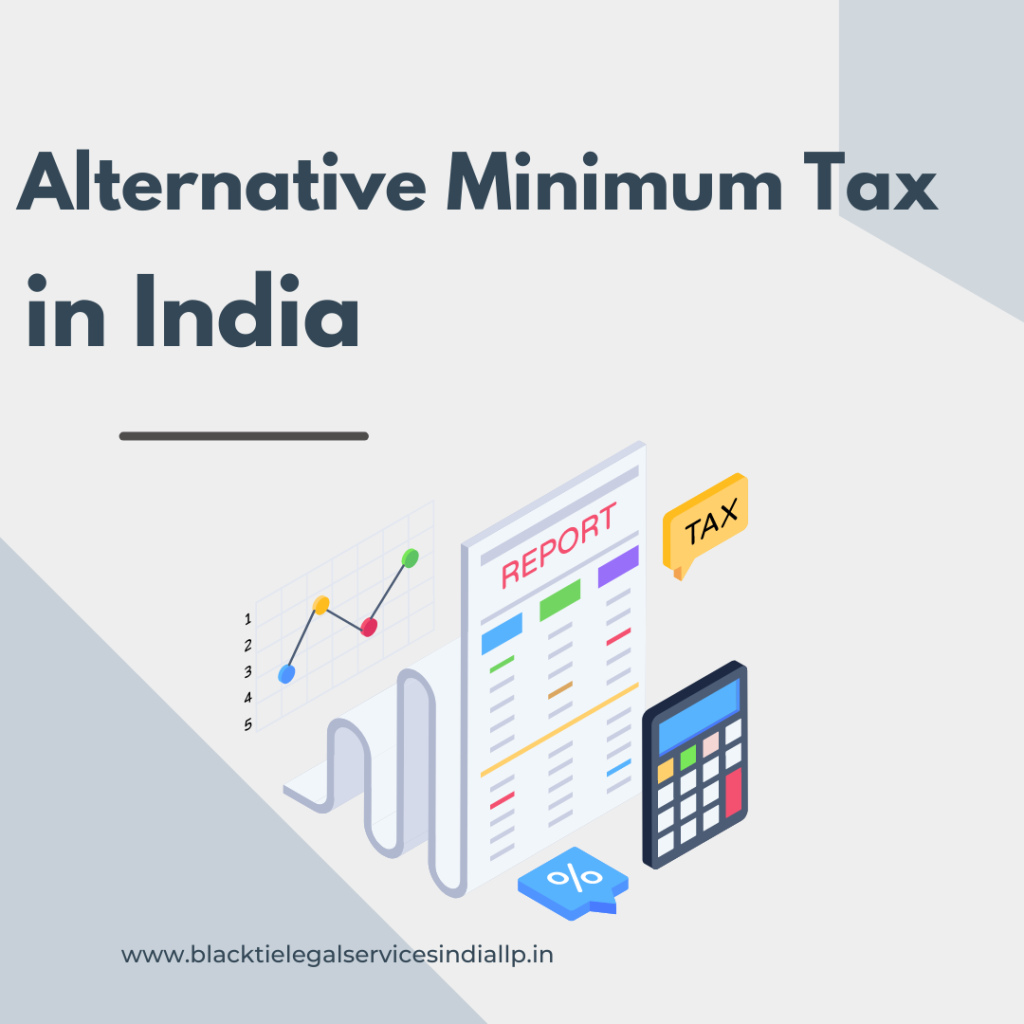
Alternative minimum tax is considered a tax that is imposed only on individuals and certain entities to ensure that the minimum tax is paid on time, even if they avail of significant deductions and exemptions under the regular income tax system and be unable to take advantage.
Minimum Alternate Tax (MAT) is very close to Alternate Minimum Tax (AMT), but the latter applies to non-corporate entities including individuals, Hindu Undivided Families (HUF), Associations of Persons (AOP) and Body of Individuals (BOI).
However, there are certain special windows where again the provisions of AMT apply such as where a company has claimed deduction under section 10AA or Chapter VI-A of the Income Tax Act.
AMT is calculated at a rate equal to 18.5 per cent of the adjusted total income, plus applicable surcharge and cess. Similar to the regime provided by MAT, the main objective of AMT is to ensure that taxpayers who have higher incomes pay less tax due to various exemptions and deductions.
Securities Transaction Tax (STT)
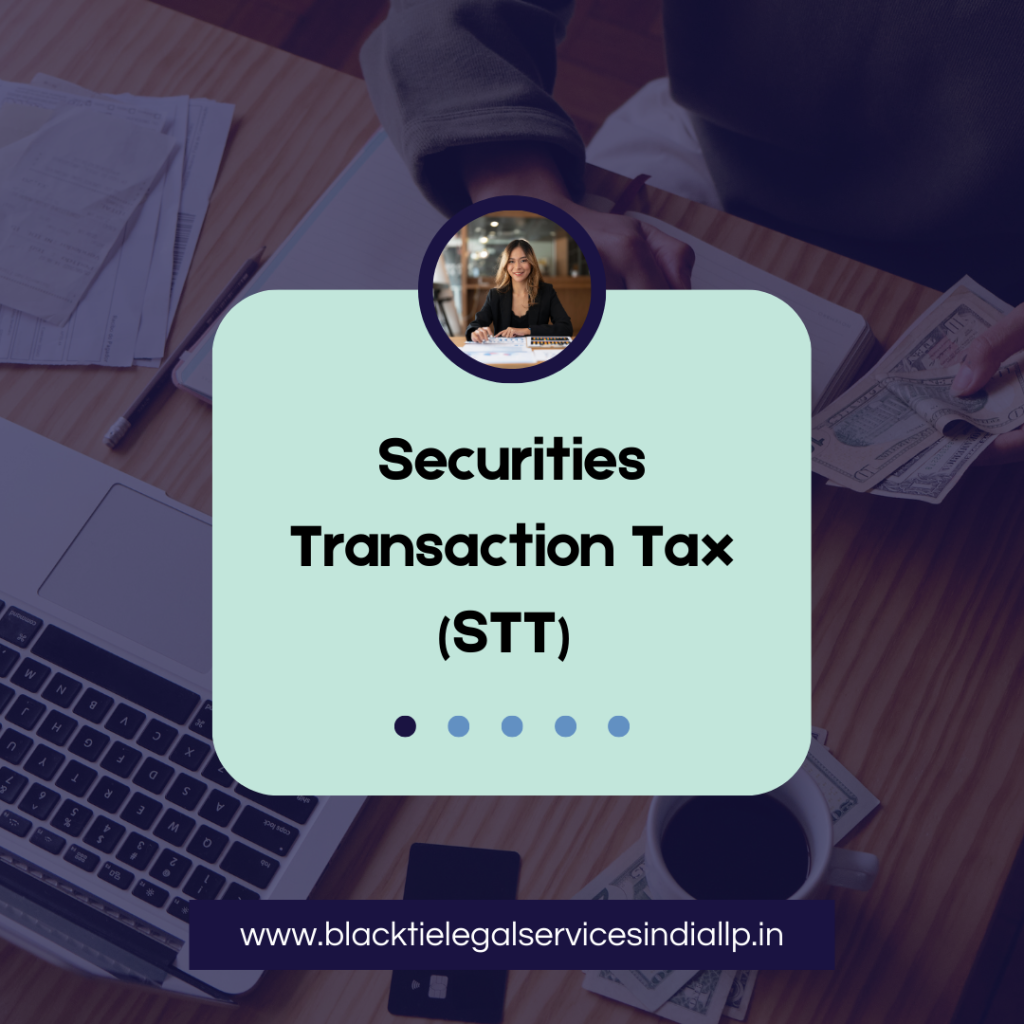
Securities Transaction Tax (STT) is a form of tax that is levied on shares bought in the stock markets. While it is not directly considered a corporate tax, it does impact corporates that are frequently involved in the trading of equities.
STT is payable on the purchase and sale of equity shares, derivatives, equity-oriented mutual funds and other securities that are listed on a recognised stock exchange.
All STT rates may vary depending on the type of security and nature of the transaction. To understand, let us use an example, Securities Transaction Tax STT on sale of equity shares in a company is 0.1% of the transaction value whereas on the other hand, STT on sale of equity-oriented mutual fund unit is 0.001%.
Commodities Transaction Tax (CTT)
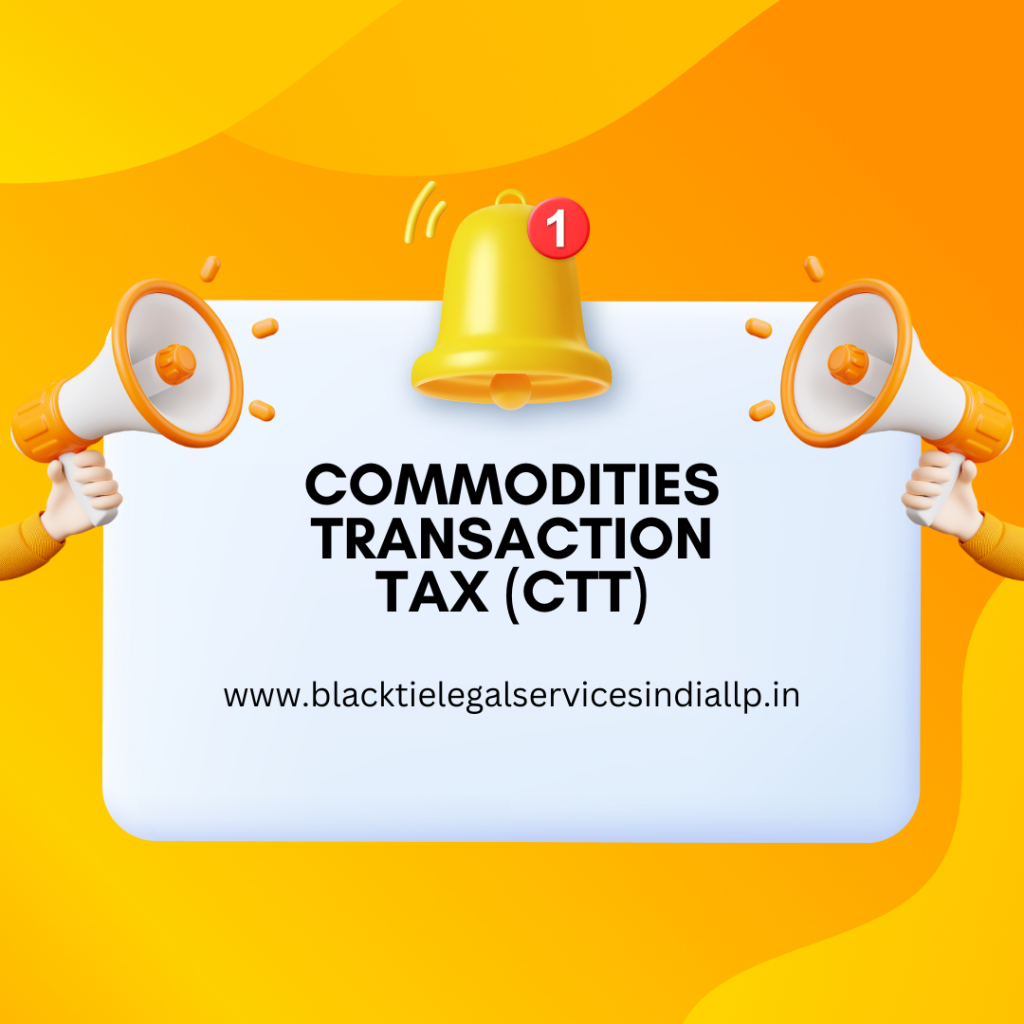
Commodities Transaction Tax (CTT) is a tax levied on the overall turnover of commodity derivatives on an exchange. Like the STT, CTT is not a direct corporate tax in the true sense, although it is more capable of affecting corporates engaged in the business of trading in commodities.
CTT is applicable at the rate of 0.01% on sale of commodity derivatives except agricultural commodities. This tax ensures that the government gets the money flow from the commodity market and also facilitates transactions in this market.
Capital Gains Tax (CGT)
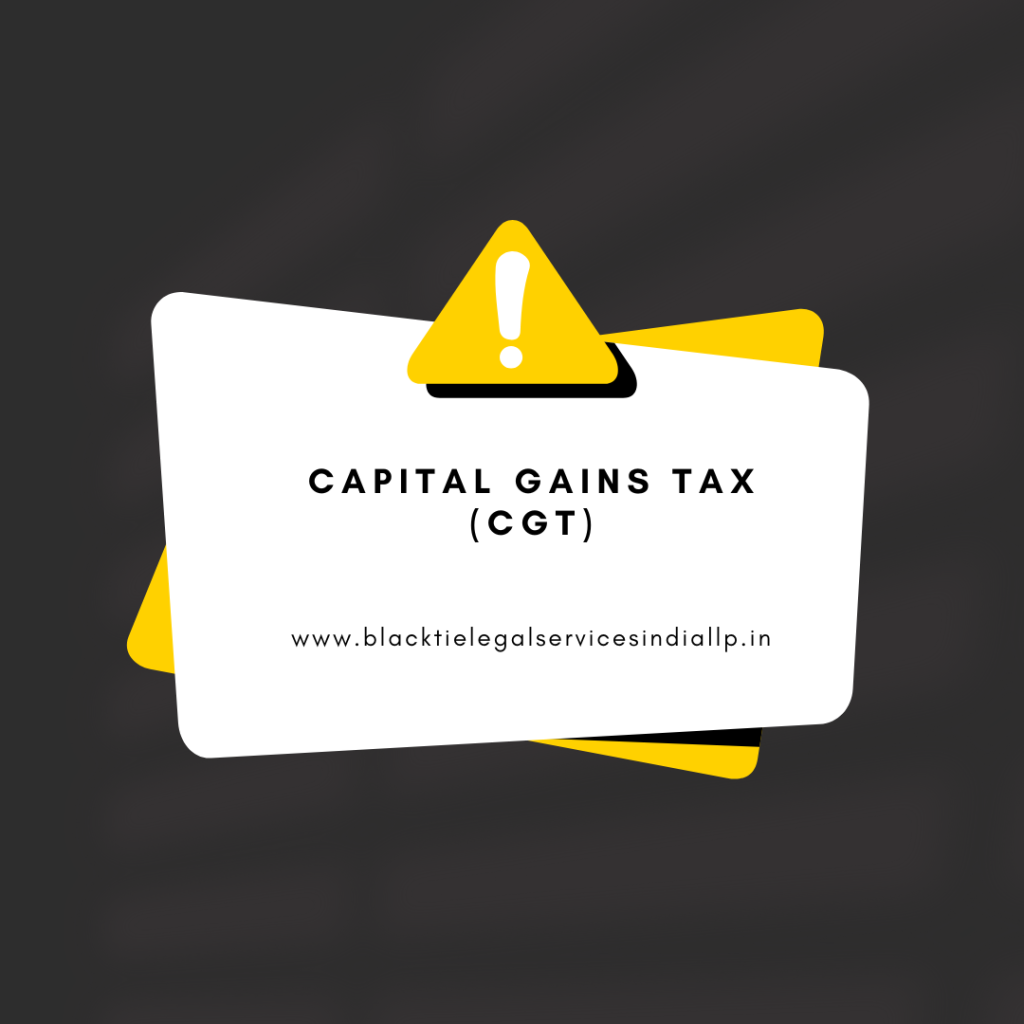
Capital gains tax (CGT)is a tax that is levied only on equity profits from the sale of equity investments including stocks, property and other investments. Therefore, the rate of this tax varies greatly depending on the nature and variety of the property.
There are two types of taxes included in capital gains tax, which we have explained in detail:
- Short term Capital Gains (STCG)
If the assets are held for a period of less than 36 months for listed securities and 12 months for shares and securities, then they fall under short term capital gains, taxed at 15% (plus surcharge as well as cess) if Securities Transaction tax (STT) is chargeable.
However, where the STCG is earned, it attracts a normal corporate income tax rate that is charged based on the company’s income tax rate.
- Long Term Capital Gains (LTCG)
For assets held for more than 36 months (12 months for shares and securities) the gain is treated as long-term capital gain.
In the currently applicable system of taxation, any capital gain exceeding Rs 1 lakh arising on sale of equity shares or equity-oriented mutual funds for a period exceeding one year is charged at the rate of 10% without the option of indexation.
Goods and Services Tax (GST)

Goods and Services Tax (GST) has not been called corporate tax in the traditional sense, because this tax has its main effect on most of the businesses in India.
GST is considered to be a type of indirect tax which is levied only on the supply of goods and services, which is quickly replacing other indirect taxes like VAT, excise duty and service tax.
GST operates under a tiered rate structure that includes tax rates ranging from 0% to 28% depending on the type of goods or services.Companies must always strictly follow all rules and regulations including filing of registration, invoices, returns and payment of taxes.
The input tax credit mechanism under GST allows businesses to offset the tax paid on inputs against the tax liability on outputs, reducing the overall tax burden.
In Conclusion
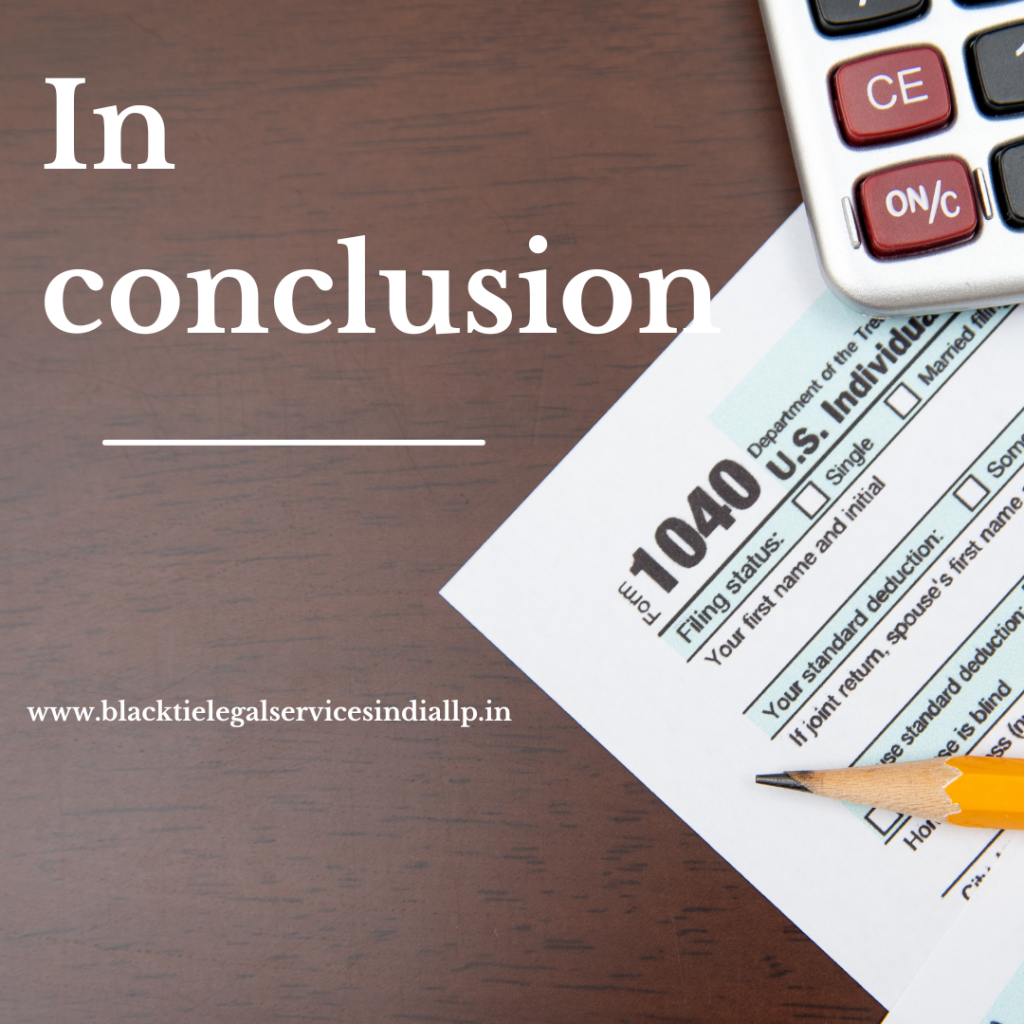
Understanding the comprehensive lesson on types of corporate tax in India is essential for companies to ensure compliance and also optimize their total liability.
From basic corporate tax to all the important special schemes like MAT, STT, AMT and CTT, each individual tax has its own set of rules and implications.
Through this blog post, we hope that you will know all about the types of corporate tax in India and those aspects which you will not get from other websites.
FAQs
Q1. Who paid highest corporate tax in india?
A1.Between in FY 2022-23, Reliance Industries was the corporate firm that paid the highest corporate tax in India. However, Tata Consultancy was one of the corporate firms with very high corporate tax rates as a percentage of revenues in this time period.
Q2. Who will pay corporate tax?
A2. Corporations pay corporate tax. This includes both domestic and foreign companies operating within a country’s borders.
Q3. Which country has zero corporate tax?
A3. There are many countries which have zero corporate tax which we have mentioned below:
Cayman Islands
Bermuda
Bahamas
British Virgin Islands
United Arab Emirates (UAE)
Q4. How is Commodities transaction tax (CTT) calculated?
A4. Commodity Transaction Tax (CTT) is calculated as 0.01% of the trade price on non-agricultural commodity futures contracts. It applies to both buyers and sellers.
Q5. When was dividend distribution tax removed in india?
A5. Dividend Distribution Tax (DDT) was removed in India in the financial year 2020-21.

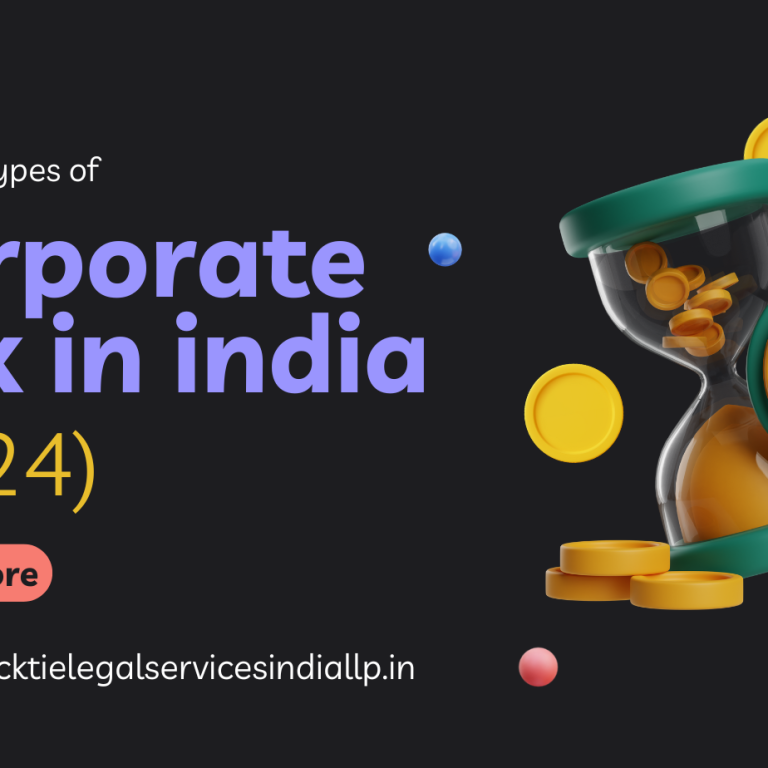
Add a Comment